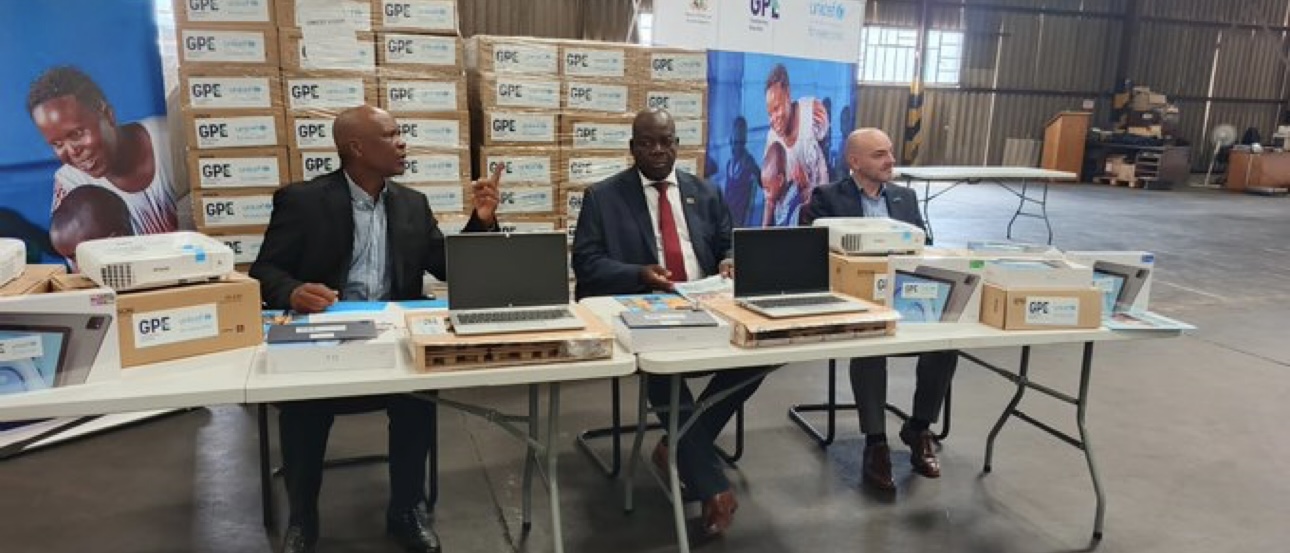BY NOKUTHABA DLAMINI
Aspiring Binga politician Tabona Muleya is frustrated by her community’s reluctance to embrace female leaders.
Muleya (28) from Sinamagonde has over the years invested financial resources and time to learn the ropes in politics, but feels her efforts are going down the drain.
In 2013, the budding politician contested as an independent council candidate for Binga Rural District Council and garnered a mere 13 votes.
Muleya believes that if she was a male candidate, she would have easily won the poll given the amount of grassroots support she enjoyed and the highly subscribed campaign meetings.
“I was voted for by only 13 people in 2013 and I have lost interest,” she said resignedly.
“When you campaign, they will listen to you but the outcome of the polls showed that our people are still reluctant to support female candidates, mainly because of misplaced cultural beliefs that we can’t lead.
“The chiefs, village heads and other ordinary villagers associate a man with power and believe that women should play subordinate roles.
“Women’s voices are always disrespected even if we do command a lot of support in the communities and we know the issues that affect them.”
Muleya says the fact that she was a single mother complicated her political aspirations as unmarried women are looked down upon in her community.
“It’s not easy to convince people in a patriarchal society that you will be able to lead them when you are a woman,” she said.
“It’s even worse when you are a single mother like me.”
Binga only has one female councillor out of 25 and has no female representative in the National Assembly or Senate.
Muleya’s story resonated with that of 51-year-old Juliana Muskwe, who has been contesting to be a Member of Parliament since 2013 on a ruling Zanu PF party ticket.
Muskwe from Tinde says her greatest hurdle is winning the confidence of traditional leaders, who are considered to be power brokers in rural constituencies such as Binga.
“I started contesting for political office in 2013 on a Zanu PF ticket in Binga South and I lost,” she said.
“I tried again in 2018, but I was not successful and I believe one of the reasons I lost is because I am a Tonga woman.
“Our culture does not encourage women to become leaders and often our voices don’t matter during political campaigns.”
Muskwe said the patriarchal nature of society also made it difficult for women to support fellow female candidates as they were conditioned to believe that only men can lead.
“I have been to various countries such as Kenya and Ghana to learn about leadership,” she added.
“I would come back emancipated and campaign to a point where l would be confident of winning, but when it comes to elections I will lose.
“I have been neglected by fellow women, who are also victims of patriarchy because they are told by men that we can’t lead.
“Our culture teaches us that women can’t stand in front of men at whatever platform and our community takes this to heart.”
Muskwe has even been encouraged by fellow women to give up on her political ambitions because they feel she is wasting her time.
However, the tough talking activist is not giving up yet and plans to contest in Zanu PF primary elections for the Binga South parliamentary seat ahead of the 2023 elections.
“I want to articulate women’s issues in Parliament and also to give fellow women the confidence to stand up for things that matter to them,” Muskwe added.
“After my experience where I have lost elections twice, I feel that I have a lot to offer in building the capacity of female leaders in Binga.”
Twenty-nine-year-old Lenziwe Nyoni said she will not let the hurdles encountered by women like Muskwe and Muleya stand in the way of her political ambitions, but does not want anything to do with party politics.
“I want to contest as an independent candidate because the dominant MDC Alliance party already has its own representatives (for the 2023 elections),” Nyoni said.
“My wish is to speak for voiceless women and children in council so that they also get equal opportunities in education and employment.”
Zimbabwe’s new constitution adopted in 2013 sets a quota for female representatives in Parliament.
Analysis of party lists by the Women in Politics Support Unit shows that neither the ruling Zanu-PF, which has a 30% quota for women, nor the main opposition MDC Alliance, which boasted a 50% quota for women, have lived up to their manifestos.
In 2018, 47 political parties fielded candidates and 20 of these did not field any women candidates.
Only two parties fielded only one woman each. In total, women comprised a mere 15% of candidates leaving 84 out of 210 constituencies contested by men only.
The constitution provides a quota of 60 seats set aside for proportional representation and this increased the number of female legislators from 16 to 34%.
The 60 reserved seats for women are additional to any women elected to the other 210 National Assembly seats.
Similar provisions also apply to the Senate.
There are calls to extend the quota system to local government where women only comprise 14% of councillors in Zimbabwe’s urban and rural councils.
President Emmerson Mnangagwa last year backed proposals made at the inaugural Women Councillors Indaba held in Victoria Falls for a quota for women in local government leadership positions.
The 2013 constitution also created the Zimbabwe Gender Commission whose mandate is to promote the elevation of women into leadership positions and defend their rights.
Zimbabwe is a signatory to many declarations aimed at increasing women’s participation in decision-making processes.
They included the Protocol to the African Charter on Human and People’s Rights on the Rights of Women in Africa and the Southern African Development Community’s Gender and Development Protocol.
Prince Dubeko Sibanda, MDC Alliance chairperson for Matabeleland North, attributed the poor representation of women in leadership positions to cultural beliefs and at times lack of capacity.
“When I got into this position in 2013, I made sure that a woman was given the position unopposed, or at least challenged by another female candidate that is why we have one (councillor),” Sibanda said.
“I think one of the reasons why women are not standing up for electoral positions is an issue of culture.
“While women make the majority of our political mobilisers in the district, when it comes to standing up and leading our culture generally indicates that men can lead and because of that we haven’t had many women standing up to take up leadership positions.
“We find that most women in terms of capacity they are lacking, especially women that participate in politics.”
Sibanda said some educated women were not willing to join politics.
“You will find that most women, who are professionals or academically equipped don’t want to associate with politics,” he said.
“Those who tend to have an interest are poorly resourced and lack the confidence to challenge for political office.
“But we are still busy trying to identify more and more women so that they can occupy these positions.”

 Slider3 years ago
Slider3 years ago
 National4 years ago
National4 years ago
 Tourism and Environment4 years ago
Tourism and Environment4 years ago
 Special reports4 years ago
Special reports4 years ago
 Opinion4 years ago
Opinion4 years ago
 National4 years ago
National4 years ago
 National3 years ago
National3 years ago
 National3 years ago
National3 years ago



